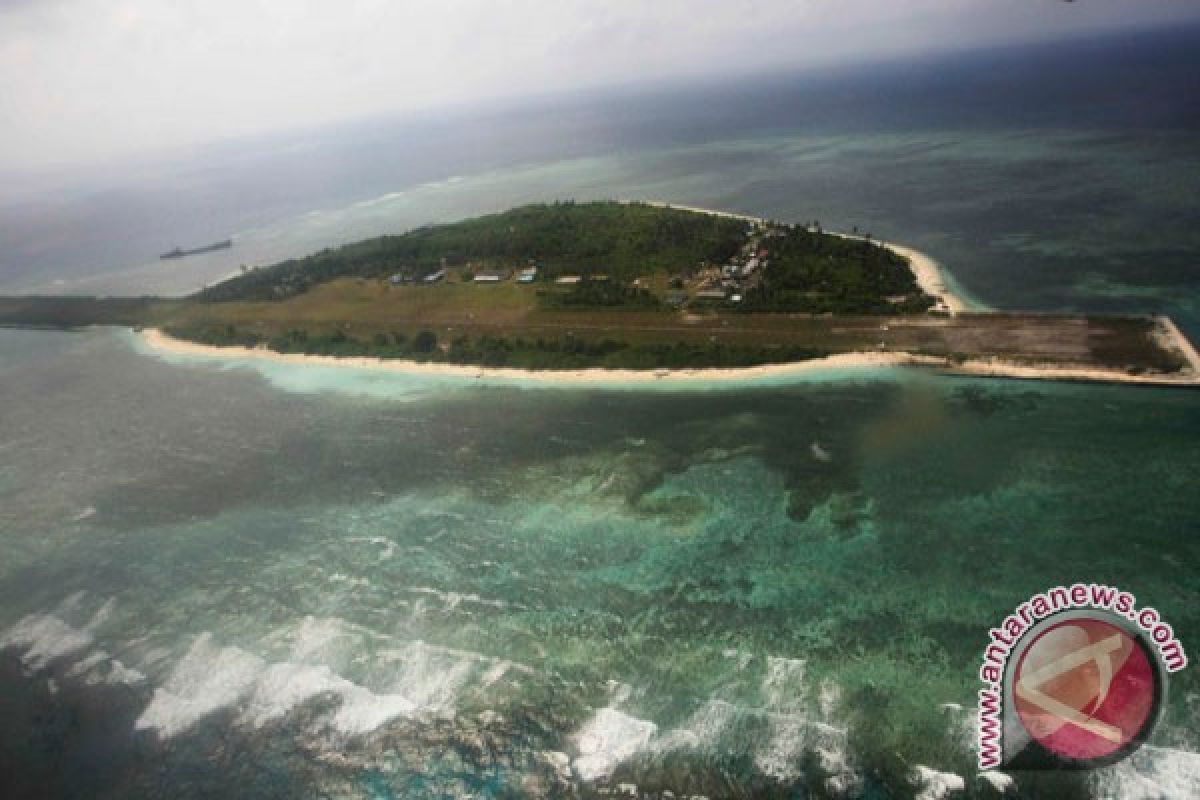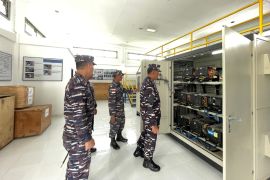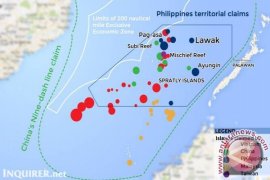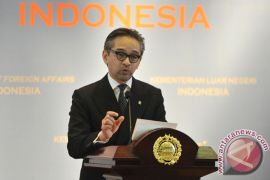The ASEAN member states and China stressed the importance of their partnership.Jakarta (ANTARA News) - The upcoming Association of Southeast Asian Nations (ASEAN) Summit and related meetings in Phnom Penh from November 15 - 20 will be the real test for ASEAN in managing regional uncertainty, particularly in dealing with the territorial dispute in the South China Sea.
Currently, Indonesia stands alone as the only member that can mediate in the dispute between the association`s member states and China.
Ludiro Madu, Director of Diplomacy Department for Indonesia Centre for Democracy, Diplomacy and Defence, said that ASEAN faces a challenge of building one voice on the South China Sea conflict, as reflected in the last ASEAN Ministerial Meeting of Foreign Ministers.
On a brighter note, shuttle diplomacy of Indonesia`s Foreign Minister Marty Natalegawa managed to solve the disagreement among the ASEAN member states and he took a regional position on dealing with China through ASEAN`s Six Principles on the South China Sea.
The main problem lies in the indecisive position of Cambodia as the Chair of the 2012 ASEAN Summit. Although Cambodia has committed to stick to the Six Principles on the South China Sea, the ASEAN members are waiting for Cambodia`s national position during the Summit.
According to him, the South China Sea conflict will be the first test of the regional commitment, based on the Bali Concord III.
Dr. Connie Rahakundini Bakrie, from University of Indonesia, noted that the South China Sea issue has been a global hotspot for several years. In addition, many international agencies view the region as a global flashpoint that has the potential to trigger new and wider conflicts in Asia.
The South China Sea in the Southwest Pacific region has regional and international significance because it is one of the world`s busiest international trade routes. It contains more than 100 small islands and reefs, spread across 158,000 square miles. It includes a group of islands called the Spratlys, which are claimed in whole or partly by China, the Philippines, Brunei, Malaysia, Vietnam and Taiwan.
These islands are believed to hold fish, oil and natural gas reserves. Furthermore, members of the ASEAN signed a non-binding pledge in 2002, stating that they would settle the South China Sea dispute peacefully.
Frequent naval clashes between countries in the South China Sea, especially in the areas near the Spratlys and the Paracel islands, have turned the territory into a source of tension.
She said that Vietnam, Singapore and the Philippines have indicated their desire for a continued US presence in the region. Vietnam has opened the Cam Ranh Bay to visits by the US naval vessels, Singapore will host the forward deployment of the US Navy Littoral Combat Ships, and the Manila Declaration was signed in November reaffirming the US-Philippines Mutual Defence Treaty.
Despite the fast pace of globalisation, economic development plays an important role in the growth of the neighbouring countries. Countries in Asia, in particular, those in the ASEAN region, are at their peak in terms of economic development. Under such circumstances, sea power plays a significant role in economic development, forcing several countries to place their competing interests before the territorial sovereignty of the seas in the region.
Therefore, establishing peace and putting various conflict resolution mechanisms in place will certainly contribute to the settlement of these disputes. Since the 1990s, efforts have been undertaken by countries in the region, to stabilise the situation and these efforts have resulted in the ASEAN Declaration on the South China Sea in 1992, and later, the ASEAN-China Declaration on the Conduct (DOC) of Parties in the South China Sea in 2002.
The DOC is the first step towards the establishment of a Code of Conduct (COC) in the South China Sea, which has been a discussion topic for over a decade. "The 2002 DOC of Parties in the South China Sea has a multilateral dimension, and is based on the convergence of views on the need to peacefully manage the dispute," said Dr. Bakrie. "The declaration is only an interim political agreement."
Between November 1 and 2, a workshop in light of the 10th Anniversary of the DOC, was held in Phnom Penh, which highlighted the progress of the DOC implementation over the past ten years. It also emphasised how the ASEAN and China can work together to implement the DOC, which could contribute to the peace and stability in the region.
During the discussion, the ASEAN member states and China stressed the importance of their partnership in promoting the ASEAN-China Strategic Partnership in the implementation of the COC, based on consensus.
All the claimants of the South China Sea should agree to have an ideal model of cooperation that can supersede the overlapping claims of sovereignty, which in Dr. Bakrie's opinion, should be the China ASEAN Strategic Petroleum Resources & ASEAN maritime power cooperation.
Beijing`s willingness to negotiate with ASEAN should be restored. China should have clearer guidelines for ASEAN with regards to the usage of $ 500 million, allocated for maritime cooperation, said Dr Bakrie, Executive Director of Institute for Defence and Security Studies.
After receiving an honorary doctorate degree from the Tsinghua University in Beijing on March 23, President Susilo Bambang Yudhoyono urged the claimant countries not to view the South China Sea as an area of conflict, but as a scope for cooperation, which will benefit all the parties.
To control potential armed conflicts in the South China Sea, ASEAN has urged China to conclude the COC as soon as possible and replace the DOC. ASEAN hopes that the more legally-binding COC will encourage all the parties to refrain from resorting to force or other coercive measures in resolving disputes over the South China Sea, according on the international law, including the UNCLOS 1982, Treaty of Amity and Cooperation (TAC), DOC and the Guidelines for the implementation of the DOC.
Countries in the region, such as Indonesia and Vietnam, have made significant contributions to these processes, and in addressing other emerging regional issues.
Based on the DOC process, it is probably reasonable to conclude that the COC process will not be an easy one. Most likely, there will be tough negotiations on the drafting of the COC among the concerned parties. However, in light of a peaceful and a more secure South China Sea, which bears huge interests of every country within and outside the region, an early round of negotiations between ASEAN and China should be considered.
Indonesia has taken the initiative to promulgate a COC, comprising confidence building and conflict prevention measures, and conflict management measures, should a conflict arise, to prevent the situation from becoming worse. The COC Zero Draft was circulated to the ASEAN foreign ministers during their meeting at the UN General Assembly in October.
Singapore`s Foreign Minister, K. Shanmugam, supported the COC Zero Draft on the South China Sea, proposed by Indonesia, to settle the maritime territorial dispute. He said that the COC Zero Draft was a good start and praised Indonesia`s efforts to find peaceful solutions to the territorial dispute which involves six countries, four of which are ASEAN member states.
Indonesia`s Foreign Minister, Marty Natalegawa, said that the COC draft needed to be discussed to ensure it fits perfectly.
In his remarks at the joint press briefing with Indonesia`s Foreign Minister, Marty Natalegawa, on August 10, Chinese Foreign Minister, Yang Jiechi, said that all the countries in the region share the responsibility of maintaining peace and stability in the South China Sea.
China is willing to work with Indonesia and other ASEAN countries to implement the Declaration on the Conduct of Parties in the South China Sea, by building mutual trust, promoting cooperation and maintaining stability in the South China Sea. In addition, China will work in accordance with the principles and the spirit of the Declaration on the Conduct parties in the South China Sea, and on the basis of consensus, resulting in the adoption of a Code of Conduct in the South China Sea, he said.
It is understandable that the South China Sea matter is one of the most complicated regional issues, which requires both trust and a rules-based approach. So, it not only requires a long-term commitment and patience, but also constructive and practical effort from all the parties.
(T.M016/INE/KR-BSR/S012)
Reporter: by Mohammad Anthoni
Editor: Priyambodo RH
Copyright © ANTARA 2012








